Elections
Latest
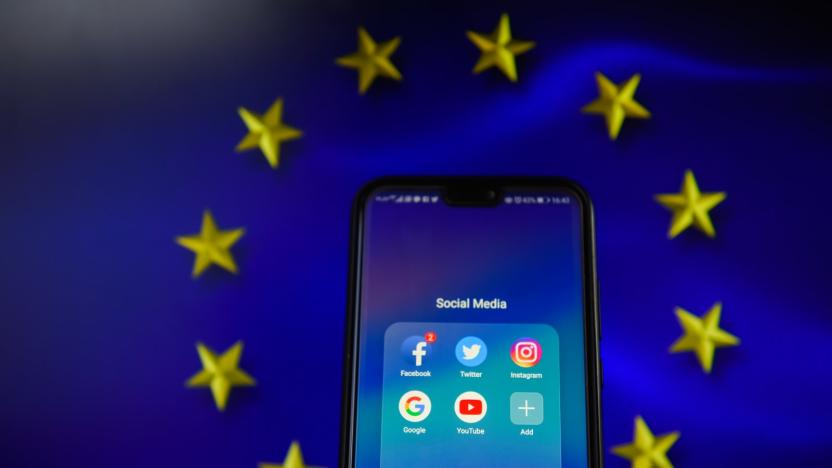
EU may fine political groups misusing personal data to skew elections
The European Union is determined to prevent a Cambridge Analytica-style scandal where politicians misuse personal data for strategic gains. The Financial Times has learned of a European Commission draft amendment that would fine political organizations if they benefit from surreptitious personal data gathering. The details are reportedly still in flux, but the penalty would represent about 5 percent of a political party's yearly budget -- not necessarily fatal to a campaign by itself, but it would stack on top of GDPR-related fines.
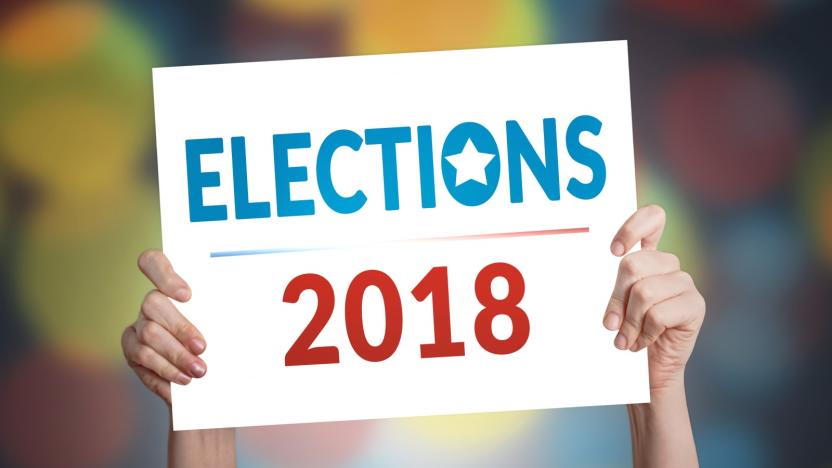
Lyft will offer free rides on Election Day in November
Lyft wants to help you do your civic duty, so it's giving away free and discounted rides on November 6th. The ride-hailing firm has an existing free ride program for emergency situations and non-emergency ones involving veterans and job seekers. Now, it's also teaming up with Vote.org, TurboVote and Nonprofit Vote -- services that keep you informed about the elections -- to distribute 50 percent off promo codes to those who need them. It's also working with nonpartisan and nonprofit orgs, including Voto Latino and Urban League, to provide free rides to underserved communities in an effort to give them a way to exercise their right to vote these midterms.

Facebook pulls hundreds of 'inauthentic' pages linked to Iran and Russia
Once again, Facebook is notifying the media that it has mass-removed accounts exhibiting "coordinated inauthentic behavior on Facebook and Instagram." This time around, Mark Zuckerberg said the cull caught up 652 pages that it says were linked to a campaign originating in Iran, as well as an unspecified number of accounts linked to Russian military intelligence services. Like Microsoft's announcement last night and Facebook's last notice in July, these changes are part of a push for security around elections happening in 2018, including the just-concluded events in Mexico, and the US midterms in November. While Facebook attributed the moves announced today to four separate investigations, it acknowledged that security company FireEye tipped it off to a network of sites starting with "Liberty Front Press." Facebook connected the page's backers to Iranian state media, saying that some of the accounts were created as early as 2013, while targeting viewers in the Middle East, UK, US and Latin America. One of the pages had 155,000 followers, and one of its Instagram accounts notched 48,000 followers. While some of the pages found pretended to be news and other organizations, a second group of "inauthentic" news pages showed evidence of attempts to hack accounts and spread malware.

Reviewing election cybersecurity in this week's primary states
Since learning of Russia's attempts to hack into the elections systems of 21 states during the 2016 US presidential race, legislators have been on high alert. Cybersecurity experts have warned it's likely the Kremlin will attack again, and already it's been caught attempting to infiltrate legislators' computers and use phony social media accounts to influence the outcome of 2018 state primaries. Four states are holding elections on Tuesday -- Kansas, Michigan, Missouri and Washington -- and some lawmakers are doing more than others to protect their systems against cyber attacks. Here's a breakdown of each state's approach to elections cybersecurity, as of August 2018:
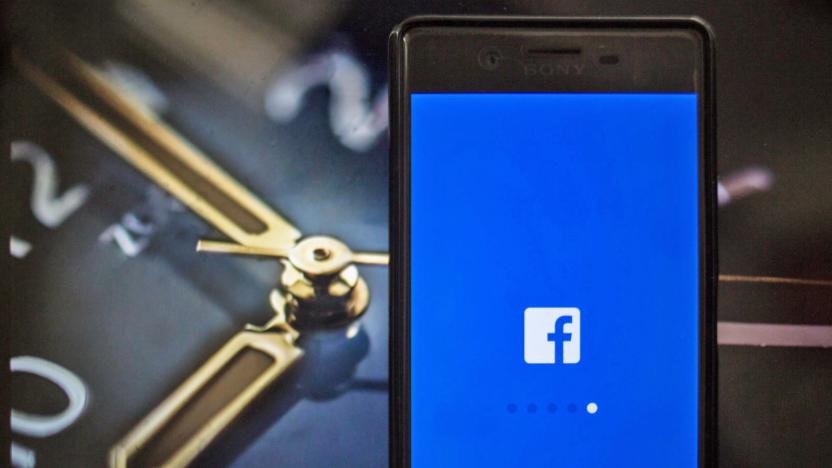
Facebook's tougher policies delay Hispanic political ads
Facebook's stricter ad policies may be creating further complications for legitimate campaigns. Strategists for Hispanic organizations have told the Washington Post that their political ads typically require "several days" to reach Facebook simply because they're targeting a Spanish-language audience. As the social network's policies require it to both review ads targeted at ethnic groups and fight racial discrimination, the process takes considerably more time than ads aimed at a general audience.

UK politicians blame Facebook for the rise of fake news
After an 18 month investigation, the UK parliament has issued a scathing report on the handling of fake news and illegal election ads by tech companies, especially Facebook. The Digital, Culture, Media and Sport (DCMS) committee said Facebook "obfuscated" information and refused to probe potential Russian abuse until forced to by the US Senate. Worst of all, the social network helped spread disinformation and hatred against the Rohingya minority in Myanmar. "Facebook is releasing a product that is dangerous to consumers and deeply unethical," the report states.
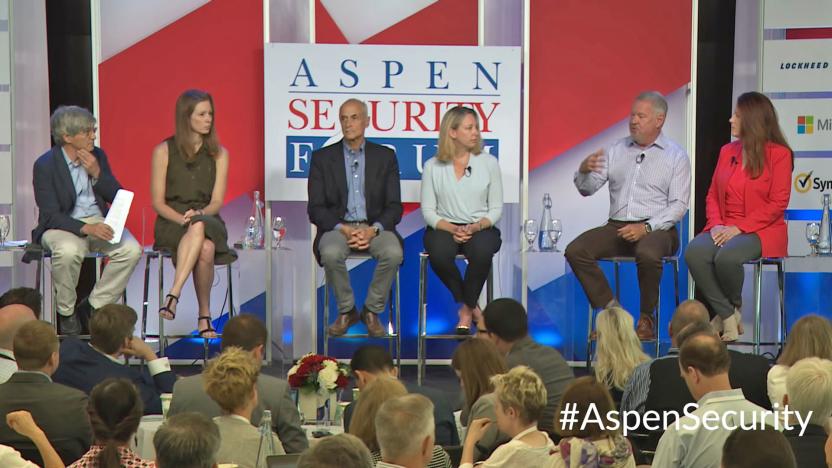
Microsoft detected Russian phishing attacks on three 2018 campaigns
Russia is still launching cyberattacks against the US, a Microsoft exec has revealed, contradicting what the President claimed just a few days ago. According to Microsoft VP for customer security and trust Tom Burt (shown above second from right, with his hand raised), his team discovered a spear-phishing campaign targeting three candidates running for office in 2018. Burt announced his team's findings while speaking on a panel at the Aspen Security Forum, where he also revealed that they traced the new campaign to a group believed to be operated by the GRU, Russia's largest foreign intelligence agency. In other words, those three candidates are being targeted by the same organization that infiltrated the DNC and Hillary Clinton's Presidential campaign in 2016.

Twitter puts verification fixes on hold as elections loom
Twitter has spent the past several months trying to fix its verification mess, but it looks like you'll have to wait a while longer for a solution. New product lead Kayvon Beykpour has announced that Twitter is putting its verification reform efforts on hold to focus on "information quality" in the run-up to the US mid-term elections. The move is meant to help the social network "move faster" on areas it thinks are "most important," Beykpour said.

Facebook releases massive data set for election research
Last April, Facebook announced its intention to research social media's influence on elections. Now the company has revealed how it will do so. In conjunction with Harvard's Social Science One, the new project will give researchers and academics access to a lot of data. The first study, Facebook URL Shares, estimates that it will have to sort through 2 million unique URLs shared in 300 million posts per week.

Facebook wants to help small businesses protect your privacy
Data privacy is a continually growing concern in the wake of news of election tampering and Cambridge Analytica scandals. As the EU's General Data Protection Regulations (GDPR) take full effect, it's not only big corporations that need to be wary of protecting their users' privacy. Facebook is now partnering with TeachPrivacy in the US for community events held to train small and medium businesses on ten specific things they need to know about customer data protection. Sessions will be held in Baltimore, New Orleans, San Diego, Palo Alto and Edison, New Jersey. Facebook is working with the Promontory consulting group to train folks in the EU, as well.
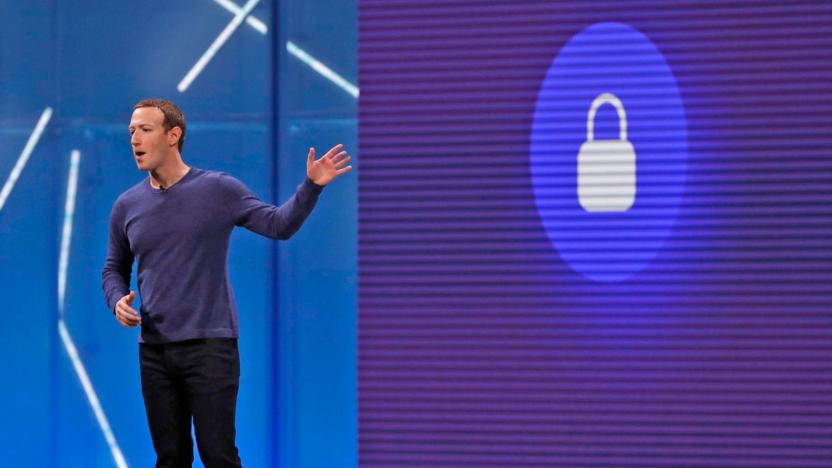
Facebook partners with think tank to fight global election meddling
Unless you've been hiding under a rock, you're probably aware of how foreign actors influenced the 2016 presidential election using Facebook ads. Letting foreign interests interfere in the US election process is a major problem, so Facebook's doubling down on efforts to stamp out meddling on its platform.
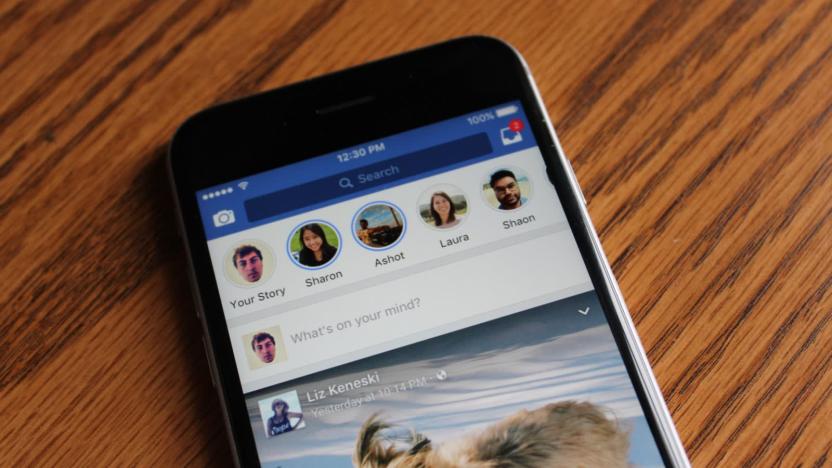
Facebook is stepping up its fight against fake news
In the wake of the 2016 US elections, Facebook began to fight against fake news and divisive content. It hired third-party fact checkers to start vetting content that had been flagged by regular users. The company sponsored a call today with members of the press to address how it continues to protect elections from abuse and exploitation.
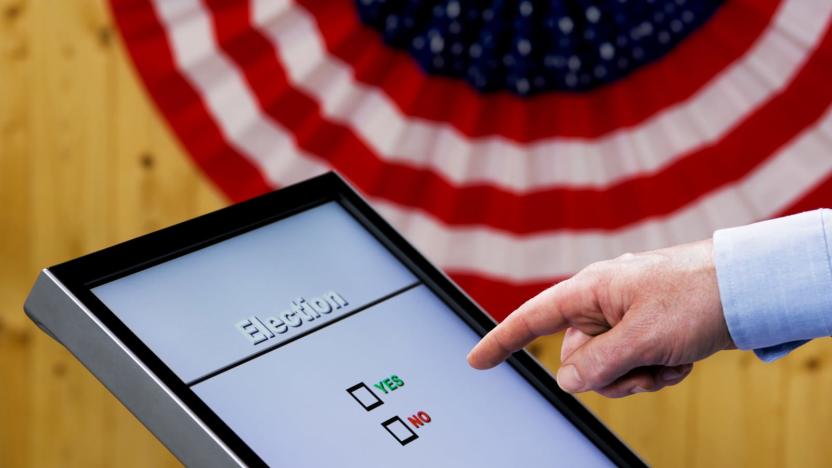
Pennsylvania requires paper trail on all new voting machines
Pennsylvania has taken a leaf out of Virginia's book and is now looking to replace its obsolete and vulnerable voting machines with more secure ones. A new directive requires counties planning to replace their voting machines with new ones that have paper backups -- problem is, the state doesn't have the budget for them. Most of the 20,000 machines Pennsylvania has been using the past decade are purely digital, so the state will need around $60 million to replace them with systems that cost $3,000 each.
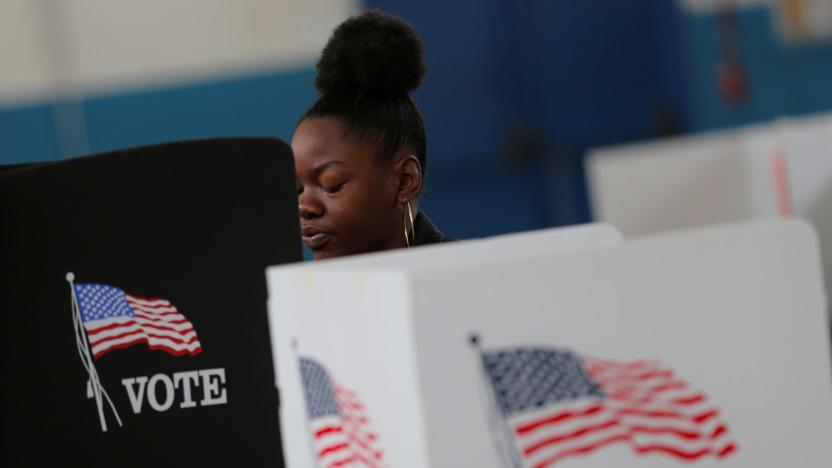
Russians accessed US voter registration records before 2016 election
The Department of Homeland Security has revealed that Russian forces have successfully accessed voter registration rolls of several US states in the months prior to the 2016 presidential election. Jeanette Manfra, the head of cybersecurity of the Department of Homeland Security, told NBC News that of they saw a targeting of 21 states, and "an exceptionally small number of them were actually successfully penetrated."

Seattle demands Facebook disclose campaign ad information
Seattle has launched the first attempt in the US to regulate political ads on the internet. According to Reuters, Seattle's election authority is accusing Facebook of violating a city law that requires entities to disclose the identities of people buying campaign ads. It wants the social network to reveal info on the accounts that purchased ads for last year's city elections, and it's threatening to slap Facebook with penalties if it doesn't comply.
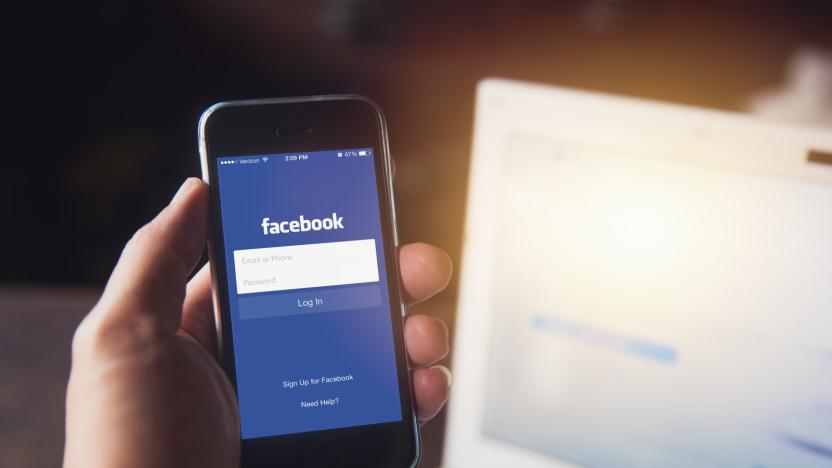
FEC reviews stricter rules for political ads on social media
The Federal Exchange Commission has begun reviewing a stricter set of rules for political ads on social media. FEC chief Ellen Weintraub has revealed at a tech conference in Washington that the agency has finished writing up a draft of new rules, months after it agreed to do so following requests from politicians and tech titans alike. She said the commission is hoping to "to be able move this rule-making forward within" the 2018 midterm elections.

Facebook pledges funding to non-profit election security group
Just last week, Harvard Kennedy School's Belfer Center launched Defending Digital Democracy, an across-the-aisles bipartisan effort to find ways to protect against election hacking. The group includes campaign managers from Hillary Clinton and Mitt Romney's presidential campaigns as well Google and Facebook security staffers. A new report on Reuters says that Facebook will also provide an initial funding of $500,000 to the nonprofit.
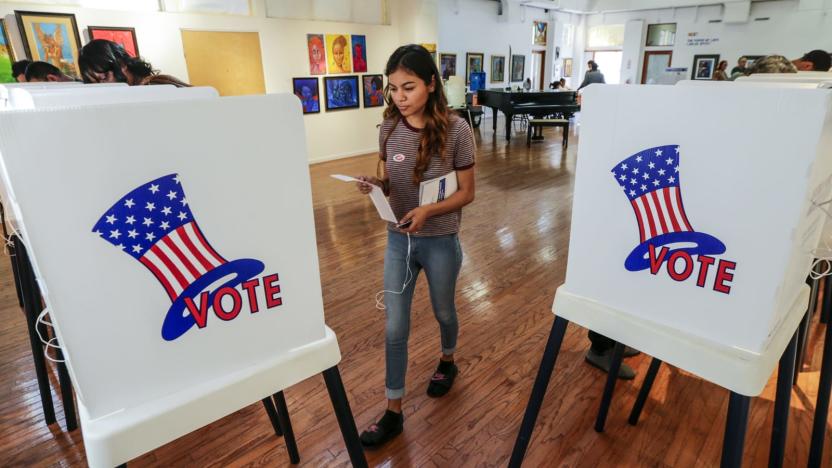
Clinton, Romney campaign managers unite to fight election hacking
The threat of hacks disrupting US elections is very real, and enough people are concerned that it's creating some strange bedfellows. Harvard Kennedy School's Belfer Center has launched Defending Digital Democracy, a bipartisan effort to offer technology, strategies and other tools that can protect against election-oriented cyberattacks. And when they say it's an across-the-aisle effort, they mean it. Campaign managers for former presidential candidates Hillary Clinton and Mitt Romney will help lead the group, as will Facebook's security chief, Google's info security director and the co-founder of security firm CrowdStrike. The head of the group is Eric Rosenbach, who was Chief of Staff to recent Defense Secretary Ash Carter.
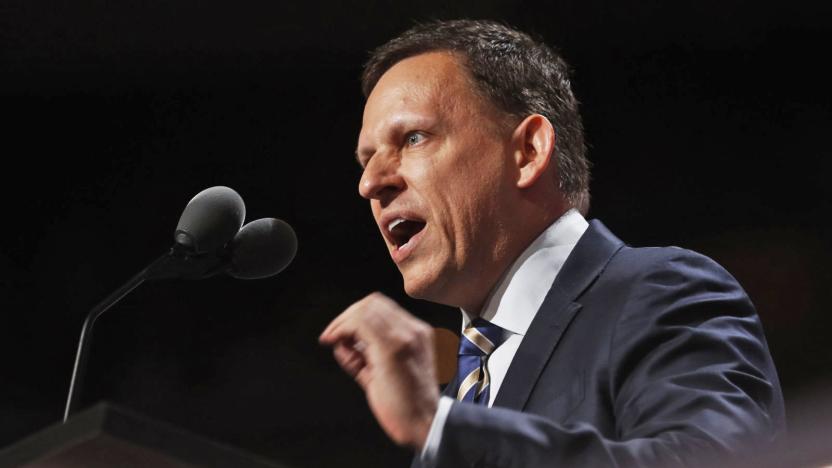
Supporting Peter Thiel isn't embracing 'diversity'
Presidential candidate Donald Trump has had a rough week. After a tape was revealed of him bragging that he could grab women "by the pussy" and get away with it, several former female acquaintances have come forward accusing him of sexual assault. But that hasn't stopped venture capitalist Peter Thiel, an ardent Trump supporter, from giving him $1.25 million this past weekend. It so happens that Thiel is also a part-time partner of startup incubator Y Combinator and a longtime member of Facebook's board of directors. Yet neither entity has rescinded its support of Thiel. Facebook CEO Mark Zuckerberg's reason? To protect those with "different viewpoints" in the name of "diversity."
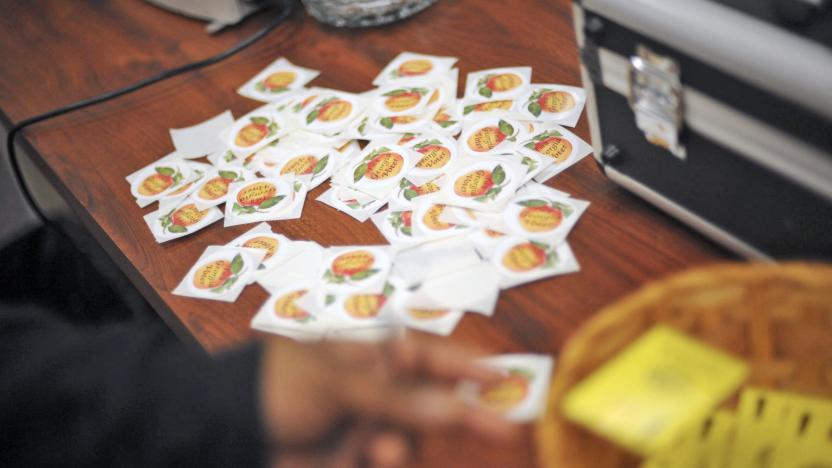
Clueless Georgia official placed on election cybersecurity panel
When it comes to US government officials who might know a thing or two about cybersecurity, Georgia Secretary of State Brian Kemp doesn't rank highly. He was behind a massive private data leak that affected millions of that state's citizens, which involved mailing out CDs filled with every voter's drivers license and social security number. He also rejected an offer from the Department of Homeland Security to protect Georgia's antiquated voting machines. But, for some reason, those "accomplishments" led to Kemp being placed on a DHS election cybersecurity panel this week, where he'll work with other state officials to discuss potential technological threats to elections.








